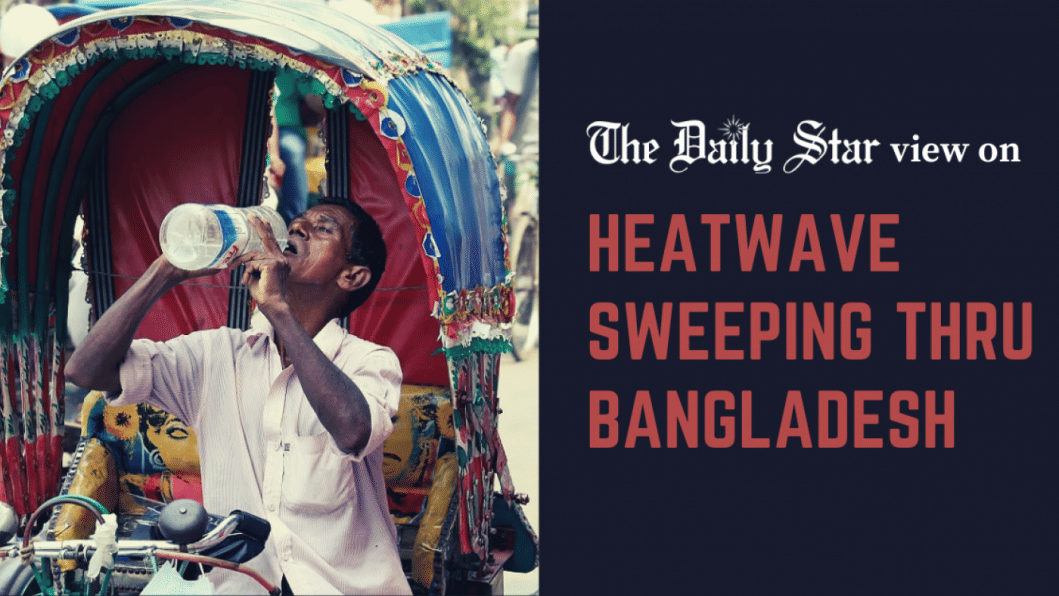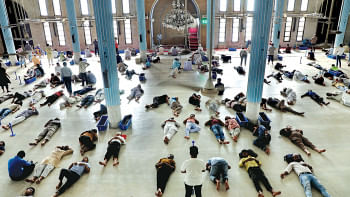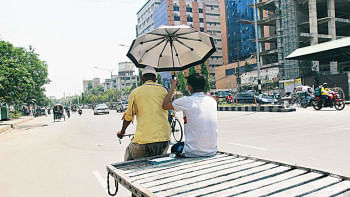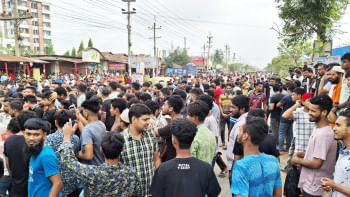Stay Safe in the Heat

Bad news: the severe heatwave that has been sweeping through the country for about a week may continue for a few more days. On Sunday, Dhaka experienced its hottest day in the last 58 years, with a temperature of 40.5 degrees Celsius. Things are even worse off in some places outside the capital, with Chuadanga recording 42.2 degrees Celsius on Saturday – the highest in this season. In such a situation, the risks of heat strokes are quite high, with people experiencing cold-related illnesses.
Doctors say that a heat stroke, if untreated, can have immediate and long-term health consequences. One may recall that last July, during a lengthy heat spell in the northern region, at least 70 people died of heat-related illnesses in just three days. No doubt, the ongoing record-breaking heatwave and the relentless air pollution in urban centres make a terrifying combination for the ordinary people, with the poor and disadvantaged suffering disproportionately.
The problem is, the causes behind the ongoing heatwave are so multifaceted that there is no single entity that we can point our finger to or seek redressal from. There are no easy solutions either. While experts recommend that children and elderly people should remain indoors during the day, this is not an option for many, particularly day labourers and informal-sector workers who cannot afford to not work. Given the insanely high prices of most essentials, people are forced to bear the impossible heat during work, commute, and even rest.
There is no denying that human-induced climate change is largely to blame for the heatwave. It is a fact that our cities, particularly Dhaka, are ill-planned. Structures are being erected on any piece of land that is empty, without a care about how it will affect the surrounding environment. Tall buildings clustered around each other not only block wind flow and trap heat; the heavy use of air conditioners also contributes to higher temperatures.
In the countryside, rivers are drying up, leaving behind sandy patches which emanate unbearable heat, making living and livelihood difficult for local communities. Given the increasing lack of wetlands across the country thanks to pollution and encroachment, people feel hotter than they otherwise would. And with more greenery being destroyed than is planted, it is no wonder that we are facing this intense heatwave. Lack of humidity is only making it worse.
Given the reality, only long-term planning and thoughtful policies can rein in the extreme weather events we are witnessing today. We urge the city corporations, local administrations and all development authorities to stop the current trend of mindless urbanisation and deforestation. Water bodies must be protected from encroachers. Those responsible for choking rivers and canals must be brought to book. Decentralisation of Dhaka, too, must be prioritised. While the public must be aware of how to not fall ill during an extreme heatwave, global and local leaders must stamp down on the larger causes behind it.

 For all latest news, follow The Daily Star's Google News channel.
For all latest news, follow The Daily Star's Google News channel. 







Comments